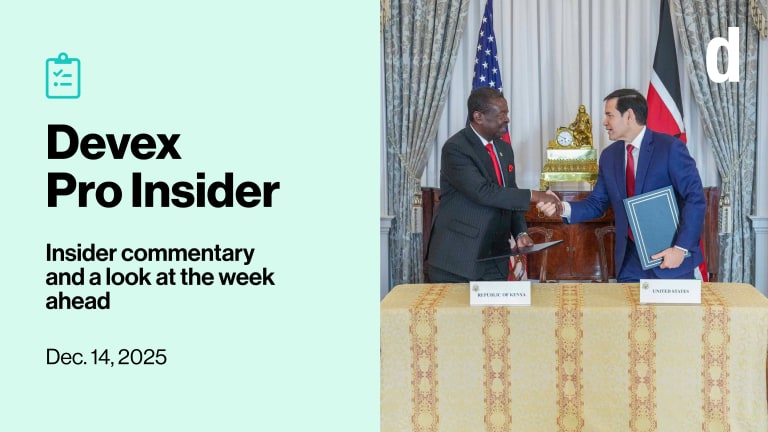
Around the world, extreme and unpredictable weather events as a result of climate change are making it harder for rural communities to access safe, clean water — and it’s often women and people with disabilities who bear the greatest burden.
Devex in your ears: The WASH Works podcast
Listen to Why women and girls lose the most in the absence of WASH, and in case you missed the other episodes, you can access them through Apple Podcasts, Spotify, or Spreaker.
In southern Indonesia and East Timor for example, heavy rainfall means water collection points in ravines become inaccessible for people with disabilities as well as elderly people or pregnant people. Then come the dry spells and droughts, forcing communities to ration the scarce water supplies for everyday activities, such as cooking and flushing the toilet, and leaving open defecation as their only option. Women who must defecate outside can face sexual harassment and sometimes violence, bringing them stress and anxiety.
Water will always be a challenging space with competing objectives and a range of issues, said Emily Barbour, a senior research scientist at The Commonwealth Scientific and Industrial Research Organisation. She is supporting an Australian Pacific Climate Partnership-funded project that aims to enhance resilient WASH in Papua New Guinea through knowledge brokering.
It’s important to consider the connection between people and nature, Barbour said. The issue of water availability might, for example, be a “very human challenge” in terms of who has access to and operates the infrastructure, or who was involved in the design processes.
Civil society organizations and other implementers working in the WASH space are increasingly recognizing that climate change is a threat to progress and that some groups feel its impacts more than others.
Continue reading to find out how a bottom-up approach centered around women and people with disabilities could lead to more inclusive and resilient WASH services.
Visit the WASH Works series for more coverage on water, sanitation, and hygiene — and importantly, how WASH efforts intersect with other development challenges. You can join the conversation using the hashtag #WASHWorks.









